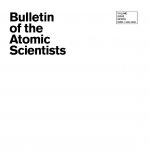Nuclear energy in the Middle East: Chimera or solution?
By Jim Krane, Amy Myers Jaffe, Jareer Elass | January 2, 2016
Whenever people read that oil-rich countries in the Middle East are vigorously pursuing nuclear power, they tend to wonder: Why don’t those countries just burn their oil? This article examines economic and strategic considerations behind the Middle Eastern nuclear power boom. Why do many Middle Eastern countries view nuclear power more favourably than renewables such as solar power? How do state policies on energy pricing influence these decisions? What are the advantages of huge up-front investments when lower-cost power generation options are available? What will the presence of nuclear plants do to the relationship between the Gulf States and the West, not just in terms of economics but for geostrategy? This article gives an overall view, and then examines in more depth three of the countries in this region – Saudi Arabia, the emirate of Abu Dhabi in the United Arab Emirates, and Iran – and their possible reasons for pursuing nuclear power. These motivations include cost, as well as enhanced security, transfers of technology, and strategic benefits. Subtle rationales extend beyond simply providing an affordable source of electricity, with implications for civil liberties, national security, and international relations.
Together, we make the world safer.
The Bulletin elevates expert voices above the noise. But as an independent nonprofit organization, our operations depend on the support of readers like you. Help us continue to deliver quality journalism that holds leaders accountable. Your support of our work at any level is important. In return, we promise our coverage will be understandable, influential, vigilant, solution-oriented, and fair-minded. Together we can make a difference.
Issue: Bulletin of the Atomic Scientists Volume 72 Issue 1
Keywords: Middle East, economics, electricity policy, natural gas, nuclear energy, oil, power consumption, security policy
Topics: Uncategorized
















